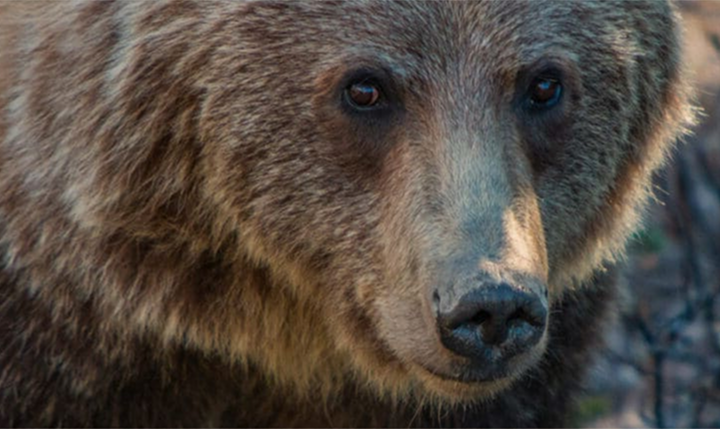When it comes to affecting change, it starts with one person — you.
These days it seems there are calls to action everywhere on all kinds of concerning issues. This can be troubling, but it can also be your moment to shine and make a difference.
Taking action matters because concerned voices can be the difference between a proposed solution becoming reality or a beneficial policy change getting squashed.
Wherever you live in the Yellowstone to Yukon region, elected officials are there to hear from people like you and to make decisions that benefit their constituency. Hearing from you helps to inform those decisions.
We’ve created this post to help provide insight about how to ask for or support changes, especially those related to conservation concerns.
Write, call, post, meet, tweet: How can you make the biggest impact?
Put simply, no matter how you comment, it is best if you do so in your own words.
Many organizations, including Y2Y, use templates and form letters so it is easier for people to engage with decision-makers. The downside is that if these letters come from many people but are all the same, their value may be discounted.
One recommendation is to use templates and form letters as tools that spark ideas for your own unique submission, e.g., customizing your letter (or at least the beginning) if possible.
Another suggestion is to email the office of the elected official directly, or better yet, make a phone call. In fact, people who have worked in political roles have said calling is an effective way to be heard. Your results may vary depending where you live and the issue, but a person-to-person phone call is a direct way to engage.
We get it, calling people can be nerve-wracking. But if it is effective, it could be worth it. After you’re done, ask a friend or two to do the same. There’s power in numbers.
You can also request a meeting, especially if you’re a constituent living in the area in question. You may not get much time, but meeting face-to-face can leave a lasting impression.
Be clear and concise
Not sure what to say? Calling government officials is no more difficult than making a doctor’s appointment or ordering take-out.
Keep your message short, impactful and polite. You can expect to be asked to provide:
- Your name and location
- Your ask: do you support or oppose what is proposed?
Consider making a short script with your key points. Often a staffer or voicemail will take your message, so you won’t have long to talk. Pick a few standout points and be emphatic.
A tip: if you call outside standard office hours, you are more likely to get a machine — that could have a full voicemail in-box. Time your call accordingly and don’t leave it until the last minute.
What about petitions?
We’re glad you asked. It’s easy to click a few buttons and add your support to a cause — but can it achieve big goals? The answer is: sometimes.
Petitions can be great tools that give officials a quick temperature check on public opinion. For example, if there is overall support for, or opposition to, a certain issue.
Depending on timing, the end goal and who they are shared with, petitions can be effective. They can also help raise donations, garner more support, connect people, create media interest, or raise awareness around an issue, quickly. Y2Y runs petitions from time to time, especially on emerging, urgent situations, as a first step in advocacy.
In Canada, Parliamentary Petitions are sometimes read in the House or another legislative body. Putting your name on one of these is a good way to get an issue “on the official record”, and facilitate public/political discussion and debate.
Petitions are a great place to start. But keep it going! Your impact is greater if you follow up with a phone call or a personalized email to the elected official.
Talking to the right person
Decisions are made at various political levels, from municipal and regional all the way to federal or international. It is important to be talking to the right person on the issue you are concerned about. Sometimes that is your local Member of the Legislative Assembly (MLA), mayor or town council, sometimes it is the provincial environment minister or even Congress.
It may take a bit of research, but finding out the person responsible for this issue is important. See below for a list of places to start finding who to talk to.
Don’t forget that the political opponents of those in power also need to hear from you! For example, in Canada’s federal and provincial systems, one elected member from opposition parties usually takes a role in a “shadow Cabinet” as the Critic for each ministry (e.g., the environment critic).
In the United States, congressional oversight comes into play through the review, monitoring, and supervision of federal agencies, programs, activities, and policy implementation. Members of the house committee on oversight and reform, particularly the subcommittee of the environment, would be helpful to contact in such situations.
A complicating issue in Canada is that many wildlife and conservation issues are provincially regulated, but there is cross-over with federal jurisdiction. Some examples include issues related to species at risk or fish and fish habitat.
If you aren’t sure who to call or write to, it often best to start with the provincial representative, and CC your member of Parliament. In the U.S., start with your member of Congress, likely a Senator, or state representative.

What about comment periods or consultations?
When weighing a major decision or developing a law or policy, governments often give members of the public an opportunity to provide feedback.
Participating in these exercises is a vital part of democracy. It can be helpful to call or email personally to share your thoughts in addition to a formal survey or written submission process.
Sign up for our Action Alert newsletter to stay in touch with these opportunities related to Y2Y’s work.
Who do you call?
Here is some important contact information in the Yellowstone to Yukon region:
Federal – Canada
- Contact the Federal Minister of Environment and Climate Change phone: 819-938-3813 or ec.ministre-minister.ec@canada.ca
- Find your Member of Parliament (MP)
- Find federal ministers and parliamentary secretaries (see specific issues of interest in their mandate letters)
Federal – United States
Unsure of your congressional district or who your representative is?
- Find out with this tool: who is your representative?
- Search for opportunities to engage with Bureau of Land Management and National Environmental Policy Act decisions
Provincial – Alberta
- Search for your Member of the Legislative Assembly (MLA) by address at Streetkey
- Contact Alberta’s Minister of Environment and Protected Areas via email: epa.minister@gov.ab.ca or phone: 780-427-2391
- Find other provincial ministers via the staff directory
- Reach out to the Premier via email: premier@gov.ab.ca or phone: 780-427-2251
Provincial – British Columbia
- Find your MLA by constituency or community
- Contact the Minister of Environment and Climate Change Strategy via email at ENV.Minister@gov.bc.ca or phone: 250-387-1187
- Find other provincial ministers in the staff directory
- Reach out to the Premier via email at premier@gov.bc.ca or phone: 250-387-1715
State – Montana, Idaho, Wyoming
- Find your Governor
- Contact your State legislators
- Contact Idaho Fish and Game by region
- Contact Montana Fish Wildlife and Parks
- Contact Wyoming Game and Fish
Local level – United States
- Learn who your county official is
- Search for your mayor
- Find other local decision-makers
More levels, including Tribal government information or who to contact by issue, are available at USA.gov
Ready to put your skills to work?
Take action and get involved in one of the issues on-going in the Yellowstone to Yukon region now:
When it comes to getting things done, you’re our biggest help. Get started by taking part in one of our current campaigns. Be heard for nature in the Yellowstone to Yukon region.


